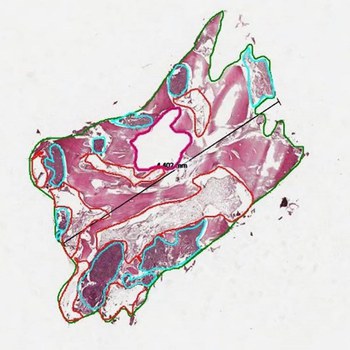Research areas
Factors responsible for tissue damage in dentistry
The periodontal pathology varies in severity, from simple gingivitis to periodontitis. In its worst form, persistent inflammatory processes create a profound degeneration of the tissues that support the teeth; in fact, these processes are the most common cause of lost teeth. The inflammations are caused by multiple factors, including infective agents, genetic predisposition, and systemic diseases, as well as behavioral factors like poor oral hygiene and cigarette smoking. Our research aims to identify the etiological role of certain species of bacteria and individual predisposing factors, in order to promote the development of innovative diagnostics.
Tissue regeneration and materials of biomedical interest in dentistry and orthopedics
In vitro models have been adopted for study in order to evaluate the biocompatibility of materials of clinical interest. Various types of cells, like stem cells obtained from adult tissue, primary cultures of fibroblasts and osteoblasts, and cell lines derived from bone, are cultured in contact with implant biomaterials (titanium, anatase, zirconium, zirconium oxide, BioOss®) or in the presence of molecules which have the potential to promote bone regrowth. The effects at the cellular level are assessed with methods from cellular and molecular biology, with particular attention to the analysis of genetic expression. This approach provides the opportunity to measure how the cells react to the contact with biomaterials, while significantly reducing costs compared to traditional technology—and also reducing the use of laboratory animals.
Research project
Periodontal diseases, and in particular the associated pathogenic bacteria, are being considered as possible etiological factors for the fostering of other grave pathologies, such as colorectal cancer, inflammatory bowel disease, and endocarditis.
Ongoing research objectives
Fusobacterium nucleatum is a bacterium implicated in the development of gingivitis and periodontitis. Recently it has been shown that the bacterium preferentially infiltrates adenomas and carcinomas of the colon instead of adjacent, healthy tissue. The objective of the research is to verify whether periodontal ailments and the presence of F. nucleatum can be associated with the development of neoplastic changes in the colon, and to acquire the data which will show whether this bacterium plays an active role in the neoplastic transformation of the intestinal wall.
Infective endocarditis is aserious disease which damages the heart valves. The oral cavity and the associated inflammatory pathlogies are acknowledged as possible sources of bacteremia. The research objective is to investigate the possible correlations between oral inflammatory pathologies and endocarditis and identify the responsible pathogens.
